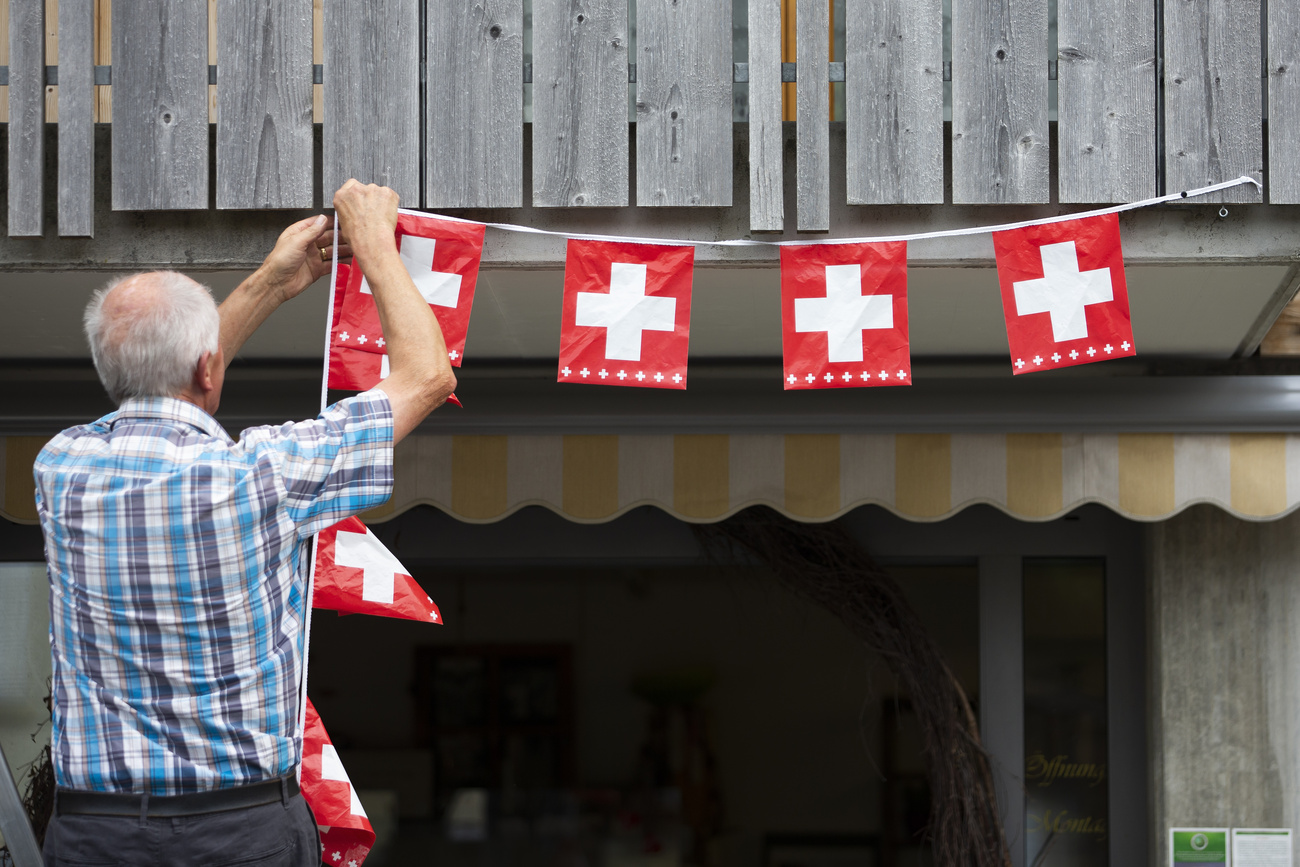
Switzerland offers non-mRNA Covid-19 vaccine alternative

The Swiss government has signed a contract with the American firm Janssen, part of the Johnson & Johnson group of companies, to purchase 150,000 doses of its Covid-19 vaccine, a viral vector model delivered in only one shot.
Cantons, which are responsible for organising vaccinations, are set to receive the vaccine early next week and will be able to offer the jab primarily to people who cannot be given the mRNA vaccine for medical reasons.
However, the government said on WednesdayExternal link that anyone aged over 18 wishing to be vaccinated can receive the Janssen vaccine.
The vaccine was approved for use by medicine regulator Swissmedic in March. Until now the country had been offering two different vaccines in two doses to its population developed by Moderna and by Pfizer/BioNTech. These vaccines use mRNA technology, a process that injects a fragment of the coronavirus blueprint into human cells to prompt the body to produce a defensive response.
By contrast, the Janssen vaccine can be administered in one shot and is based on a human cold virus that contains the blueprint for the “spike” protein of the novel coronavirus.
According to the authorities, the vaccine offers “very good protection” against hospitalisation and severe forms of the illness. Johnson & Johnson have said that recent research shows the vaccine is even more effective when administered twice.
Not recommended for pregnant women
Christoph Berger, president of the Federal Vaccination Commission, told reporters in Bern that a very small minority — less than 100 people — may have an intolerance, such as a severe allergic reaction, to the mRNA vaccines.
The Commission and the federal public health office do not recommend the Janssen vaccine for pregnant women and people with immune deficiencies, who instead are advised to take the mRNA vaccines. The mRNA vaccines are also recommended for children aged 12 and older.
Berger said the Janssen vaccine is an alternative for people who are sceptical of mRNA shots. Compared to other European countries, vaccination uptake is relatively low in Switzerland, with around 58% of the population fully jabbed. A survey conducted in July by the research group Sotomo and reported by the SonntagsZeitung newspaper showed that most of the unvaccinated (72%) were holding out due to fears about mRNA technology.

More
Coronavirus: the situation in Switzerland

In compliance with the JTI standards
More: SWI swissinfo.ch certified by the Journalism Trust Initiative
















![The four-metre-long painting "Sonntag der Bergbauern" [Sunday of the Mountain Farmers, 1923-24/26] had to be removed by a crane from the German Chancellery in Berlin for the exhibition in Bern.](https://www.swissinfo.ch/content/wp-content/uploads/sites/13/2025/12/01_Pressebild_KirchnerxKirchner.jpg?ver=a45b19f3)










You can find an overview of ongoing debates with our journalists here . Please join us!
If you want to start a conversation about a topic raised in this article or want to report factual errors, email us at english@swissinfo.ch.